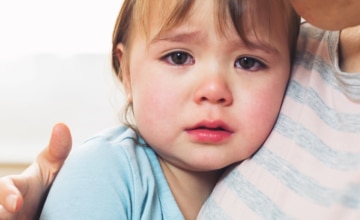This issue of the ZERO TO THREE Journal is an opportunity to hear from the early childhood community about cutting-edge interventions, recent training initiatives, new family-centered guidelines, and innovative organizational practices. The articles address:
- the complexities of grief and loss due to an abrupt placement change for a toddler in the child welfare system;
- the impact of cultural customs and taboos that lead to secrecy and shame, compounding the challenges of a difficult diagnosis;
- new, national guidelines for ensuring a successful transition from neonatal intensive care to home;
- a collaborative approach to advance the training of clinicians in the diagnosis of mental health and developmental disorders;
- a parenting intervention focused on raising awareness of bodily sensations and connecting these internal states to feelings and behavior; and
- how to bridge the gap between relationship-based practices in clinical work and the larger organizational context that could benefit from a relationship-based approach.
We are also pleased to share excerpts from two forthcoming publications from ZERO TO THREE. The article by Sufna John is from the forthcoming DC:0-5TM Casebook (Mulrooney et al., in press). The Casebook is a companion volume to DC:0-5TM: Diagnostic Classification of Mental Health Disorders in Infancy and Early Childhood (DC:0-5; ZERO TO THREE, 2021) and provides rich analysis of a diverse selection of cases. The article by Christopher Watson, with Maren Harris, Jill Hennes, Mary Harrison, and Alyssa Meuwissen, is adapted from the RIOS™ Guide for Reflective Supervision and Consultation in the Infant and Early Childhood Field (ZERO TO THREE, 2022). The Reflective Interaction Observation Scale (RIOS) is a tool for examining the reflective processes in a supervision session. It is useful both in training others in reflective supervision/consultation (RS/C), as well as applying it in one’s own RS/C sessions to evaluate and improve practice. Both publications represent significant contributions to the field and will be available at www.zerotothree.org/bookstore. Please note that ZERO TO THREE members receive discount pricing.
We would like to know what you think of the articles in this issue, and encourage you to share the topics you want to know more about by writing us at Letters to the Editor [http://s.alchemer.com/s3/ZERO-TO-THREE-Journal-Letters-to-the-Editor].
Stefanie Powers, Editor-in-Chief
spowers@zerotothree.org
Suggested Citation
Powers, S. (2022). This issue and why it matters. ZERO TO THREE Journal, 43(2), 2.
References
Mulrooney, K., Keren, M., & Osofsky, J. D. (Eds.). (2023). DC:0–5TM casebook: A guide to the use of “DC:0–5TM: Diagnostic classification of mental health and developmental disorders of infancy and early childhood” in diagnostic assessment and treatment planning. ZERO TO THREE.
ZERO TO THREE. (2021). DC:0–5TM. Diagnostic classification of mental health and developmental disorders of infancy and early childhood (Version 2.0). (Original work published 2016)




